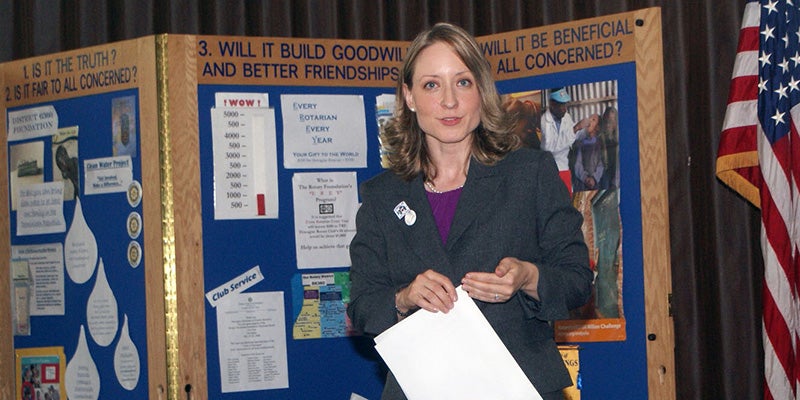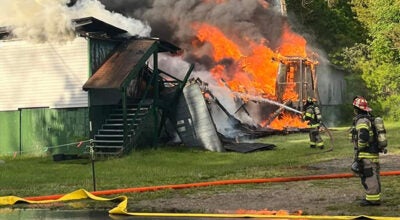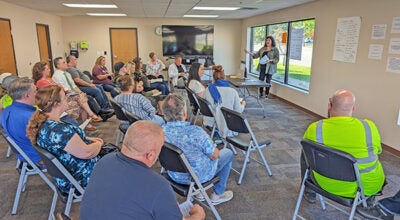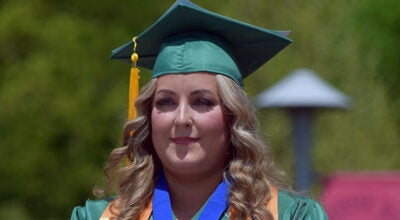It takes a special village to raise a child
Published 10:59 am Wednesday, June 1, 2016

- (Submitted photo)
Last Thursday, Cass County Youth Council President Sarah Mathews spoke to the Dowagiac Rotary Club about why Rotarians should be involved in helping promote the mission and goals of the Youth Council. Her message was simple — it takes a village to raise a child and the village needs to be connected and aware of all the services in the village to make the biggest impact possible for its children.
“It doesn’t matter if you have two parents in the home, one parent or grandparents, it really does take a village to raise a child,” Mathews said. “It takes teachers, dentists, health care professionals and next-door neighbors. Cass County is really good at being that village, but it needs to be a connected village that knows what’s going on and what services are out there. Cass County Youth Council has been trying to make a difference as part of that village since October 1983.”
Mathews explained that the Youth Council is a non-profit organization whose mission is to advocate for the health, safety and welfare of all children and families by supporting and funding effective collaborative programs, services and education that prevent child abuse and neglect.
Youth Council works in partnership with the Michigan Children’s Trust Fund, which provides half of the Council’s funding through a grant. Since 2015, the Youth Council has also partnered with the Cass County Human Services Coordinating Council which is now the administrative board for the council.
With the help of these partnerships and its members, Youth Council is currently focusing on three objectives this grant cycle to help prevent abuse and neglect in Cass County. Those three objectives are educating mandatory reporters, proper dental care and safe sleep.
Mandatory reporters are individuals whose jobs require they report suspected child abuse or neglect. The Youth Council has provided training for Mandatory Reporters and community members through is annual luncheon program that is held each April.
Last year’s luncheon at SMC featured Nancy Diehl, State Bar of Michigan past president, on mixed messages hampering prevention programs.
“We teach children their bodies are their own and people shouldn’t touch them, but in the next breath at family functions they’re told they’re not leaving until they kiss their aunt goodbye,” Mathews said. “These are things we need to think about when we are designing programs to help fight abuse and neglect issues.”
Mathews was joined in her presentation by Youth Council Vice President Kristen Chism, with Michigan Department of Health and Human Services for eight years, who addressed the council’s safe sleep objective. Chism explained to those present that as a community we need to be promoting the ABCs of safe sleep for infants which she outlined for the audience.
Babies should be placed alone, on their back and in a crib.
Chism explained that adult mattresses are too soft and bedding can suffocate. Babies can become stuck in couch cushions. Bumper pads and blankets are unnecessary and can block airways.
Babies can be smothered sleeping with adults or other children.
Sleeping in car seats, bouncy seats and portable swings is also unsafe. Don’t let crying influence where babies sleep.
As part of its safe sleep objective, Youth Council is now working with Cribs for Kids to provide Pack-n-Plays to Cass County Infants under one year old who need a safe sleep environment. The Council has given seven free Pack-n-Plays where need exists since October 2015.
“To be honest,” Chism said, “I slept with my oldest child (of three), who is now 8, in my bed. I don’t drink, use drugs or do anything to put him in danger, so I thought I was immune. Then I became the chair for the Child Death Review Team. It takes so little for a baby to suffocate, I realized it was a miracle nothing happened to him. Back sleeping is safer than stomach sleeping in terms of airways. It’s so preventable.”
Yet every three days a Michigan baby dies sleeping in an unsafe place.
The two closed their presentation to Rotary with Mathews explaining why it was so important for Rotary and other community members to become actively involved in helping to spread the messages promoted by Youth Council — to decrease not only the risk of infants dying in unsafe sleep environments but to also continue building the village needed to care for children and families to the point that foster care was no longer needed.
Mathews, who is also the Cass County Assistant Prosecutor covering Family Court, stated that from October 2014 to April 2015, 21 children came under Cass County Family Court jurisdiction.
Just a year later, from October 2015 to April 2016, 71 children came under Family Court jurisdiction.
“We don’t have enough foster care homes for all the children to be placed close enough for frequent visits with their families and siblings. I had a case where the closest we could get was the Upper Peninsula.” Mathews said. Mathews urged her audience to get involved with promoting messages and programs that worked to help families prevent abuse and neglect before foster care was needed, as she explained that while foster care is needed for children in care, the removal is still none the less traumatic and something no child should have to experience if it can be prevented.
Mathews and Chism’s Elks Lodge 889 audience included Cass County Prosecutor Victor Fitz; attorney Mark Herman, who headed Youth Council 14 years; and Dr. Matthew Cripe, who spoke on dental care at Youth Council’s seventh annual Child Abuse Prevention Luncheon for 102 people April 22 at SMC.
Child abuse warning signs include: unexplained or suspicious bruises, welts, burns or fractures; unkempt or malnourished appearance; depression, anxiety or sudden mood swings; disturbed sleep; abrupt behavioral changes (eating habits, school performance, withdrawal, aggression); fear of a certain person or place; self-harm or suicide attempts; wetting or soiling accidents unrelated to toilet training; pain during urination and/or bowel movements; sexually transmitted diseases or urinary tract infections; discoloration or scarring of genital area; unusual knowledge of body parts or sex; and acting out sexually with toys or other children.
Always take seriously children’s talk of being abused. Call 911 or Child Protective Services for situations requiring immediate action.






